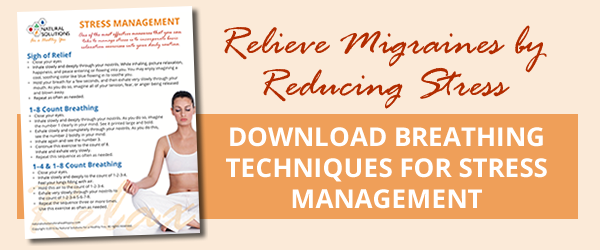What is stress?
Stress is caused when we react to situations in our internal and external environment. It can cause exhilaration, excitement, distress, or fatigue, and can manifest itself physically, mentally and emotionally. It is not the situations that are stressful; it is our reaction to the situation that causes us stress. Stress is a natural part of life, as it provides a stimulus for action.
The Consequences of Too Much Stress
First off, stress is not ‘bad’. Extra adrenaline improves performance in competitive events and is responsible for the ‘rush’ of excitement we feel when we receive good news. But prolonged or overwhelming stress can result in many problems, including increased nutritional needs.
The body often needs considerably more of certain vitamins and minerals because of the high level of daily physical and/or psychological stress we endure. To make matters worse, our gastrointestinal tract is often adversely affected during times of stress, leading to poor digestion and absorption of nutrients.
How is stress making me fat?
- Stress raises cortisol, the catabolic (breakdown) hormone.
- Over time, if this hormone stays high, it breaks down muscle, dumps sugar in the bloodstream and results in insulin resistance.
- Chronic stress lowers serotonin and makes you hypoglycemic‐both of which cause you to crave sugar.
- Chronic stress lowers the anti‐aging, libido stimulating, fat burning hormone DHEA. It also affects your body’s ability to build muscle‐your “metabolic girdle.”
The Goal: Find Ways to Relax Throughout Your Day
Occasional challenges, both physical and psychological, are not unhealthy for most people. Occasional challenging projects, arguments, difficulties with children, difficulties at work/school, etc. are a normal part of life. These types of stresses are normal and can actually be strengthening. The goal is not necessarily to avoid all stressful events, but to develop the ability to relax during day‐to‐day activities and during challenging occurrences. Persons who are recovering from an illness should attempt to keep challenging situations to a minimum but not necessarily avoid them totally unless they are extremely weak.
THEREFORE, as part of the process of promoting health and vitality and preventing & healing from illness we teach techniques, including breathing & stretching techniques, meditation, and exercise, that gradually move us towards a daily life that is less stressful and more enjoyable and fulfilling.



